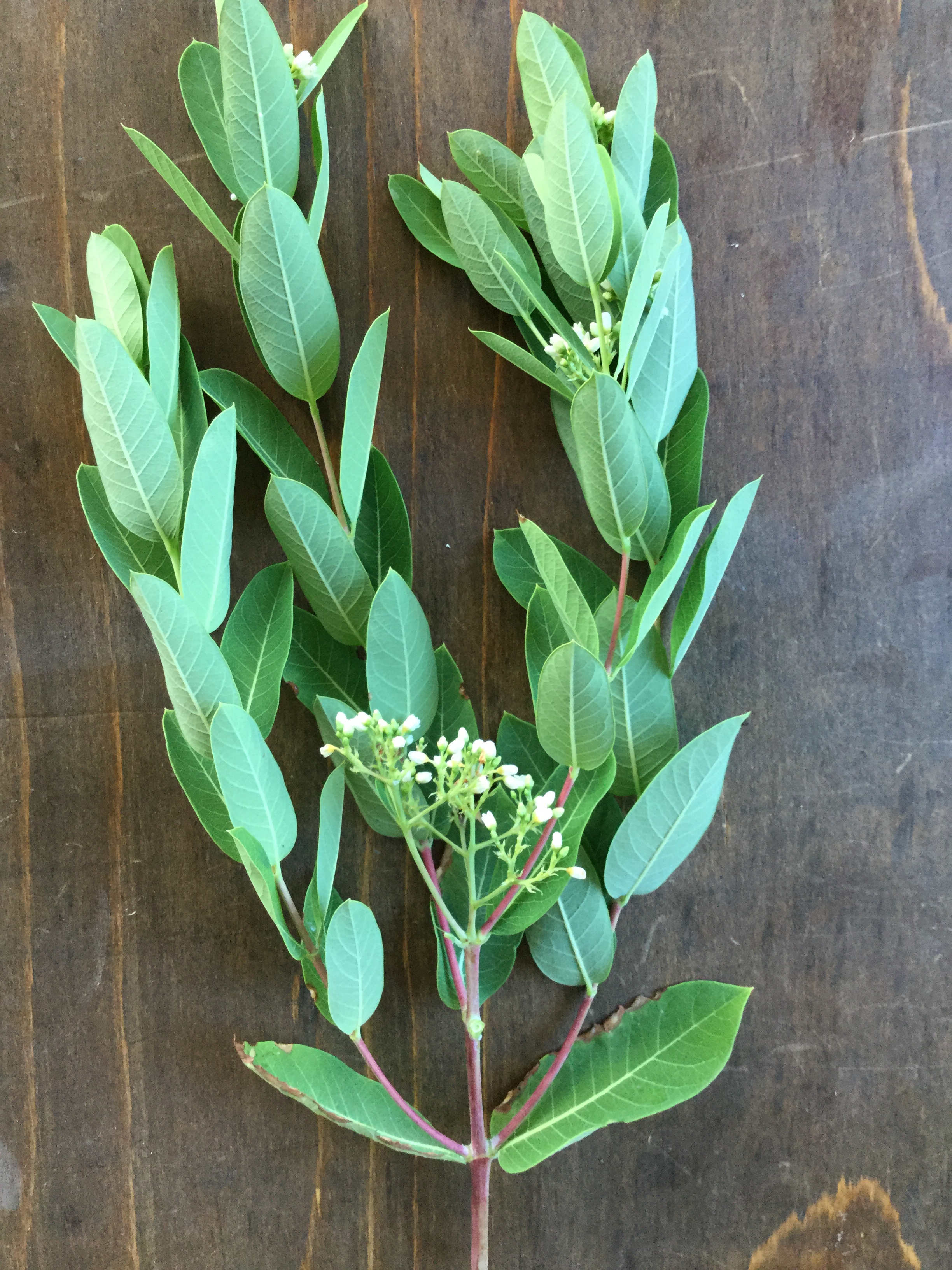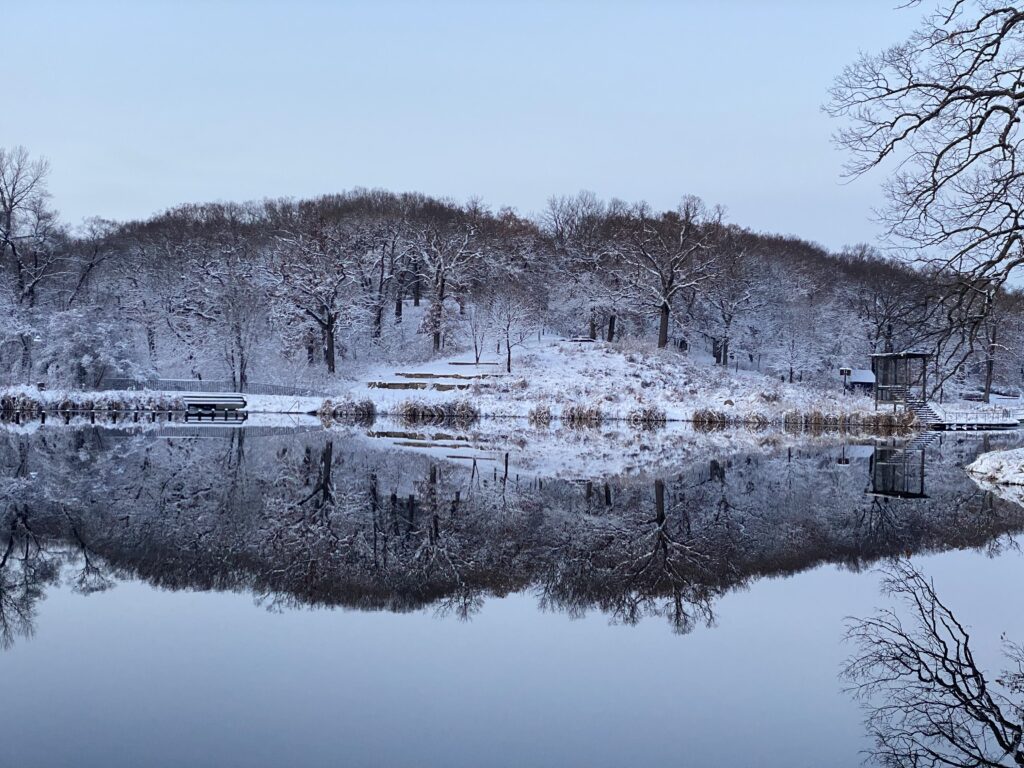Your cart is currently empty!
Seasonal Living

Seasonal tableaux
by Gao Lian, 16th Century
With commentary and suggestions by The Herbal Remedy staff
Introduced and translated by Heiner Fruehauf
The following is a presentation of four famous seasonal tableaux by Gao Lian, a 16th century poet and medical scholar who was an ardent proponent of the art of nourishing life. They originally appeared in Gao’s book, Zunsheng bajian (Eight Pieces on Observing the Fundamental Principles of Life), which Chinese physicians used to regard as a comprehensive source of lifestyle related information. Recommencing one of the main themes of the Neijing, these seasonal portraits can be read as a typical attempt to translate the densely crafted teachings of the classic into more contemporary language.
Gao Lian exemplifies the classical type of Chinese literatus who saw the cultivation of art, music, and poetry as a gateway to the mysteries of the body and the mind. While recognizing the medicine of poetry, he was also intrigued by the poetry of medicine. His delight in the rich cultural aspects of Chinese medicine and his efforts to collect medicinal recipes, herbal prescriptions, and therapeutic exercises put him in the company of other famous poets devoted to the pursuit of medical studies, such as the Song Dynasty master lyricist Su Dongbo. For both of these distinguished literati, medicine represented the realization of the artistic quest in the realm of the physical, namely humankind’s age-old search to reconnect and resonate with its cosmic origins. Gao’s writings thus reflect the conviction of the poet-philosopher class of dynastic China that one cannot successfully play music, create art, rule a country, or treat a patient without cultivating this vital connection to the macrocosm. More specifically, the following four pieces are intended to remind the technique oriented physician that in the Neijing, medicine was primarily introduced as the art of celebrating the healthy body and preventing any detachment from the vitality imbuing cycles of the universal flow.
Spring
The three months of spring are the time of renewal: the old and stale dissipates, heaven and earth come to life, and everything blossoms. Rest at night and get up early, stride freely through the courtyard, let your hair down and indulge in the leisurely feeling of a morning stroll; this is how you should raise your spirits in spring. Foster all life and do not kill, be generous and agreeable, give freely and do not punish. This is the way of honoring the qi of spring and nourishing life during this season. Going against these characteristics of the seasonal flow will have harmful affects on the liver network.
The flavor of liver wood is sour. Wood can overcome earth which is the dynamic element governing the spleen, which in turn is influenced by sweet flavors. In spring, therefore, one should eat less sour foods and increase one’s intake of mildly sweet foods to nourish spleen qi.
The warming rays of the new sun of spring kindle everything into sprouting growth, including certain diseases that have been hiding beneath the body’s surface. The weather is quite erratic during the first and second lunar month (February to April), cold at one moment and hot, the next, and since most of the elderly suffer from some kind of chronic ailment, the advancing qi of spring may cause those people to feel tired and weak. Chronic ailments flare up easily under these conditions. Also, during the winter months people tend to hover near the smoky stove and eat processed food, and these detrimental influences gradually accumulate in the body until they finally come out in spring. They will make the body feel hot and the head dizzy, the diaphragm will plug up and the mouth turn sticky, the arms will lose strength and the legs and lower back will become weak. All of these are ailments which have accumulated during the winter season. When the body exhibits signs of change and one senses that a disease may be coming on, it would be wrong to simply use moving herbs to straighten out apparent stagnation, because remedies of this nature may actually harm the organ networks at this time and cause other diseases to crop up. The appropriate way is to use remedies that extinguish wind and harmonize qi, cool the diaphragm and transform smoldering disease. If one chooses to employ dietary measures one should select foods that are energetically neither too hot nor too cold, possibly slightly cooling in nature, and which prevent stagnation by benefiting the smooth transformation of food and drink. In this manner, all of the body processes will flow naturally. If there are no signs of disease, there is no need to take any medicine.
Spring is the season of harmony. This is the time to roam through gardens and forests, to sit leisurely in scenic kiosks and take in the tranquil sights of nature. Open up your heart, get rid of all stagnant energy, and thus encourage the budding qi of birth, life, and renewal to flow. At this time, it would be against the dynamics of nature to sit around dwelling on things and grow stagnant and depressed. Avoid drinking a lot of alcohol, and show some restraint with those commonly eaten flour products that have a tendency to harm the spleen and stomach networks. They are truly hard to digest.
Especially old people should not give in to the temptation of transient oral pleasure and overeat on an empty stomach, otherwise their health will almost certainly suffer. Also, since the weather switches from cold to warm and from warm to cold, it would be a mistake for them to put their padded winter clothing away. Old people typically have weak qi, brittle bones, and a frail body that is highly susceptible to wind cold. Since their surface is invaded easily, they should always have an extra set of clothing ready which can be laid aside when the sun comes out. Decrease layer by layer, don’t get rid of everything all at once!

Spring
Element: Wood
Organs: Liver, Gall Bladder
Storage of: Ethereal Soul
TCM Viewpoint: Creative Drive, Power, Vision, Emotional Transformation, Growth
Color: Green
Emphasis: Free Coursing and Dispersion
Avoid: greasy, oily foods
Incorporate: Acrid, Sweet and Warm foods to nourish Yang Qi
| Spring is powerful and fragile. Food Recommendations: Sweet: beets, turnips, snow peas, spinach, carrots, whole grains, legumes and seeds *encourages softening and relaxing of the body Pungent: mint, lemon balm, rosemary, thyme, chives, green onions, garlic, ginger, watercress *Upward and Outward, Dispersing the buildup of winter and mimicking the renewal of spring | Cooking recommendations: Steam, Quick Boil, Quick Saute, Light Braise, Stir Fry, Spring Soups Herbal recommendations: Mountain Yam White Peony Goji Berries Chrysanthemum Flowers Honeysuckle Buds *(Health care with medicinal substances should adhere to syndrome differentiation used in the right time and at the right amount. Otherwise, it may cause harm to the organism. Consult with a licensed practitioner before administration of any food or herbal therapy.)* |
Product Picks: Chlorella Powder, Chrysanthemum, Calm Spirit
Summer
The three months of summer are governed by the energy of fire, and are thus in charge of the process of growing and ripening. The heart’s qi is abundant with fire energy, and its associated flavor is bitter. According to the controlling cycle of relationships between the five energetic phases, fire can distress metal; metal energy governs the lung, and the flavor associated with the lung network is pungent. During the summertime, therefore, one should decrease bitter foods and increase pungent flavors to nourish the lung. At the same time, one should use the sound “haaaaa” to course stagnant heart qi, and “shhhhh” to harmonize its flow.
During the “three dog days” when the hot summer temperatures are at their peak, the abdomen actually has a tendency to get cold. During this period it would be especially unhealthy to succumb to diarrhea, for this disorder drains out precious yin qi. If this should happen, do not use the energetically draining methods of acupuncture or moxibustion, but use diaphoretic herbs instead. It would be best to look ahead and prevent this and other disorders by ingesting some warming substances during the summer solstice, when the wintry forces of yin energy start making their erstwhile hidden comeback at the midnight hour. Also, a decoction that is tonic to the kidney network should be taken at this time. The heart is exuberant during the summer months, but the kidney is in its weakest state. Despite the heat, therefore, it would be unsuitable to fill up one’s belly with frosted snacks, sweetened cold drinks, cold noodles, or cold cereals. These dietary habits easily lead to abdominal cold, which in turn will cause cholera or other forms of infectious summer diarrhea. By the same token, don’t eat any summer squash, eggplant, uncooked vegetables, or other excessively yin foods, because at this time there is already plenty of yin qi present in the abdomen, and the ingestion of coagulating foods like this may promote the formation of abdominal masses. Old people, in particular, and people with a tendency for heat phlegm disorders that are really due to their cold constitution should abide by these principles and avoid those foods.
For the same reason, don’t seek relief from the heat of summer in drafty and busy places. Although you may find temporary coolness under the awning, in the corridor, in the busy outer courtyard, or near a broken window, it is in places like this that noxious winds can most easily invade the body. Seek out the tranquility of a clean and spacious room, or the pure yin energy of an open water kiosk to achieve a natural state of coolness.
Even more important, regulate your breath and put your heart at ease. Keep in mind that holding icy crystals in your heart and stomach will cause heat to flare rather than to diminish. Don’t just assume that hot things are heating and therefore will fuel an already abundant heat. Rather make it a habit to regularly take warming tonics in pill or powder form during the summer months, in order to assure a smooth functioning of the body’s qi flow. Drink warm liquids and eat warm food; never fill yourself up to the brim, but eat smaller portions in shorter intervals. Drink cinnamon tea, cook with amomum, use boiled rather than fresh water, and avoid the intake of greasy dishes and fatty animal food.
Also, do not sleep under the light of the stars and the moon, because if you camp out in the open you will be prone to wind invasion. Although you may feel an initial rush of exhilaration, the wind will most certainly make its way through your pores. This particular kind of wind invasion is truly the kind that will cause the most distressing symptoms. Somebody, for instance, who ingests cold food and then retires his or her sweaty body for the night in a drafty place will easily contract wind block syndrome resulting in numbness of the hands and feet, inhibited speech, and paralysis of the limbs. Admittedly, not everybody will contract this disorder; one could say that there are people who will become afflicted right away, while others seem hardly affected at all. This is because if a young and strong person does this during a full moon, s/he is supported by nature’s cosmic forces and will most probably remain symptom free. If, however, an old and weak person does this during a new moon when the time related forces of nature are not only unable to compensate for unhealthful behavior, but are putting additional stress on the system, then s/he will most certainly have to suffer the consequences.
Since the head is the meeting point of all yang channels, special care should be taken to protect it from the noxious influence of wind. All of the little cracks in your bedroom wall should therefore be mended at this time, so as to prevent injury to the head. Also, comb your head daily 100-200 times during the summer months, taking care not to injure the scalp and selecting a place that is free of draft. This is a natural method to expel wind and brighten the eyes.

Summer
Element: Fire
Organs: Heart, Small Intestine
Storage of: Ethereal Soul
TCM Viewpoint: Creative Drive, Power, Vision, Emotional Transformation, Growth
Color: Red
Emphasis: Nourishing and Protecting Yang
Avoid: baked, grilled foods
Incorporate: Sour and Bitter foods to nourish Yang Qi
Food Recommendations: Onion, Green peppers, Cucumber, Eggplant, Celery, Bell pepper, Green tea, Mung bean, Adzuki bean, Millet, Couscous, Buckwheat, Lentils, White Fish
Cooking recommendations: Steam, Quick Boil, Quick Saute, Light Braise, Stir Fry, Light Soups, Pickling
Herbal recommendations: Tremella Mushroom, Lily Bulb, Lotus Seed, Lotus Leaf, Astragalus, Mint, Chrysanthemum Flowers, Honeysuckle Buds
*(Health care with medicinal substances should adhere to syndrome differentiation used in the right time and at the right amount. Otherwise, it may cause harm to the organism. Consult with a licensed practitioner before administration of any food or herbal therapy.)*
Product Picks: Calm Spirit, Ten Treasure Porridge Mix, Chrysanthemum
Fall
The three months of autumn are in charge of withering and of decelerating the momentum of growth. The organ network associated with this season is the lung; this organ is abundant with qi, and it has a particular affinity to pungent flavors. When viewing the lung in the context of the other organ networks, it is important to note that metal can have an overbearing action on wood. Since the organ system associated with wood is the liver, and since this system is particularly affected by sour flavors, one should decrease the intake of pungent flavors in the fall while increasing sour ones, since this will nourish and protect liver qi.
If the lung network is in a state of pathological excess, one should use the sound “ssssssss” to drain this excess from the system. During the three month following the beginning of autumn, it is important to keep body and mind in a state of quiet harmony and to not drain one’s energy. Both spring and autumn are seasons of change, and it is particularly then that diseases will surface. Therefore, one should take special care to attend to the tranquil practices of nourishing life during those times, and to conduct both one’s daily life and the treatment of patients in accordance with the predominant energy of the respective season. In autumn, for instance, it would be inappropriate to use dispersing therapies such as emetics or strong diaphoretics, since measures like these cause people to feel drained and create restlessness in the organ networks. In case of diarrhea, for example, one should only use acupuncture/moxibustion and some herbal decoctions or powders which assist the patient’s yang qi.
People, moreover, who suffer from taxation fatigue or hemorrhoids or wasting thirst syndrome [diabetes], etc., should avoid eating fried rice, (deep) fried foods, and beef from cows that died without being slaughtered, as well as raw fish, chicken, pork, wine, fermented foods, salty foods, vinegar, and all other things that are sticky and hard to digest. People with those conditions should also avoid raw vegetables, seeds, and fermented soy bean products. The same is true for people suffering from cold syndrome due to wind qi, or people with masses below the ribcage.
It is also advisable to engage in the following exercise right after waking up in the morning: close your eyes, click your teeth twenty-one times, swallow your saliva, rub your hands together and let the heat from your palms penetrate into your eyeballs. Rub your hands and cup your eyeballs repeatedly. If one practices this exercise regularly during the three months of autumn, the eyes will become bright and illuminated.
The Neijing states: In autumn, “go to bed early and get up with the chickens [at dawn]. This will cause all mental faculties to become calm and peaceful, and moderate the downward blow of fall. Astringe your mental energy to be in harmony with the condensing quality of autumn qi. Do not disperse your energies, and the lung qi will be clear. This is the way of nourishing life in accordance with the nourishing and constricting qi of the autumnal harvest season. Going against these principles will harm the lung network, eventually causing diarrhea in winter when things should really be in a state of storage rather than leakage. The qi of autumn is dry, and so it is advisable to consume some moistening sesame to counteract the dryness. Avoid cold drinks, and do not wear damp and cold clothing close to your skin.”

Fall
Element: Metal
Organs: Lung, Large Intestine
House: the Po (corporeal soul)
Storage of: Fluid for the whole body
Govern: Voice
Orifice: Open into the nose and their brilliance is manifested in the body hair
TCM Viewpoint: Change, Virtue, Letting Go, Slowing Down
Color: White
Emphasis: Moistening and Protecting
Avoid: baked, drying foods
Incorporate: Sour foods to nourish Lung Qi
| Food Recommendations: Oats, Soy milk, Sweet Potato, Beans, Squash, Eggs, Apples, Pears, Grapefruit, Persimmon, Sesame Seed Cooking recommendations: Steam, Boil, Saute, Braise, Stir Fry, Soups, Slow Cooked Stews | Herbal recommendations: Tremella Mushroom Lily Bulb Lotus Seed Yu Zhu Sha Shen Apricot Seed *(Health care with medicinal substances should adhere to syndrome differentiation used in the right time and at the right amount. Otherwise, it may cause harm to the organism. Consult with a licensed practitioner before administration of any food or herbal therapy.)* |
Product Picks: Tonic Broth, Essence of Yin Trail Mix, Tremella, Immunity Boost Tea
Winter
During the three months of winter, heaven and earth shut down and go into a state of storage. Water turns to ice and earth splits open, and the yang qi of nature stays unperturbed. Go to bed early, therefore, and get up only after the warming rays of the sun have appeared in the morning. Avoid cold and seek out warmth, and be careful not to purge the body’s skin layer [with extreme diaphoretic measures]. Otherwise harm to the kidney network will occur, and consequently the germinating forces of spring will be impaired. During the following season of spring, then, offenders may suffer from diseases like muscular atrophy, paralysis, or stroke.
In winter, the yang is submerged within. If somebody suffers from an ailment, therefore, it is advisable to dispel existing pathogens from the body with emetic methods. Diaphoretics should not be used excessively during this time, since they easily drain out precious yang qi; the heart and diaphragm region, moreover, tend to easily accumulate heat in winter. This is the season to take a combination of tonic materials steeped in wine, or to drink 1-2 small cups of shanyao (dioscorea) wine every day to foster yang qi. At night, do not immediately collapse into bed, but settle down with leisure. Wear padded winter clothes during the coldest time, but add them gradually and not all at once; stop increasing the layers just when you have added enough to not feel cold anymore. Do not warm yourself in front of a roaring fire, since this winter habit may bring about particularly harmful consequences. The hands and feet, namely, have an affinity to the heart network, and should therefore never be toasted over a fire. The fire may otherwise be enticed into the heart and create symptoms of restlessness. For the same reasons, avoid grilling food over an open fire. Keep in mind that just as cooling medicines are not effective against extremely hot disorders, warming medicines do not work for extremely cold diseases–the nature of water is damp, while fire is dry.
One should nourish heart qi by decreasing salty foods and increasing bitter ones. This is because the winter months are associated with kidney water which in turn is affected by salty flavors. To prevent water from developing an overbearing influence on fire and thereby plunging the heart into a state of disharmony, it is best to nourish heart qi in a preventative manner. Also, it is best to withdraw to a tightly sealed dwelling in winter, and to make sure that one’s food intake is regulated and the clothing adjusted to the changes in temperature. Do not try to be daring and expose yourself to cold wind, especially if you are old, because winter poses an increased risk of catching wind cold, which will result in symptoms such as coughing, numbness of the extremities, dizziness, etc.
In winter, the earth’s yang qi resides within, while the yin qi is at the surface. Old people who often tend to exhibit heat symptoms above and cold symptoms below should therefore not take hot baths during this time. At a time when the yang smolders inside, extreme sweating may occur when one is exposed to scorching heat. At an advanced age the bones are brittle and the flesh is frail, and the body is thus easily influenced by stimuli of this sort.
Since winter is the time when external disorders are easily contracted, do not go outside at an early hour, or you will be in danger of being assaulted by frost. Drink a small cup of wine in the morning to expel the cold; in the evening take some herbs that eliminate internal heat. In this fashion, you will harmonize your heart qi and prevent pathological heat qi from flushing up. In winter, avoid the following: sex, excessive consumption of baked foods, meat, flour products, won-ton dumplings, etc.

Winter
Element: Water
Organs: Kidney, Urinary Bladder
Storage of: Jing, Life Force Energy
Color: Blue, Black
Emphasis: Kidney nourishment, Cold prevention
Avoid: cold, raw foods
Incorporate: Salty foods to support downward movement in the body and store heat and warmth in body. Bitter foods to drain and clear out internal heat buildup and regulate internal warming and cooling.
| Tonifying the body in winter enables a person to fight against a tiger in spring. Food Recommendations: Yin supplementing: black sesame, pine nuts, duck, honey, mushroom, black beans Yang supplementing: chicken, mutton, shrimp, walnuts, leeks Qi supplementing: walnuts, chestnuts, yams, carrots, kidneys Essence supporting: bone broth, beef marrow, mussels “If you do not want to see a doctor, eat radish in the winter and ginger in the summer.” Radish can regulate Qi flow, promote digestion, arrest cough, dissolve phlegm, eliminate dryness, promote fluid production, dissipate stasis, resolve toxins and promote bowel movement. | In winter, activities are reduced and waste accumulates inside the body Radish can helps to clear the intestines, move the bowels, and transform phlegm. Herbal recommendations: Ginseng Solomon seal Fleece flower Reishi Codonopsis Dodder seed *(Health care with medicinal substances should adhere to syndrome differentiation used in the right time and at the right amount. Otherwise, it may cause harm to the organism. Consult with a licensed practitioner before administration of any food or herbal therapy.)* |
Product Picks: Ginseng, Chywanprash, Black Sesame Latte, Joint Balm, Warming Foot Bath, Winter Care Kit (Yin Qiao, Gan Mao, Ding Chuan)